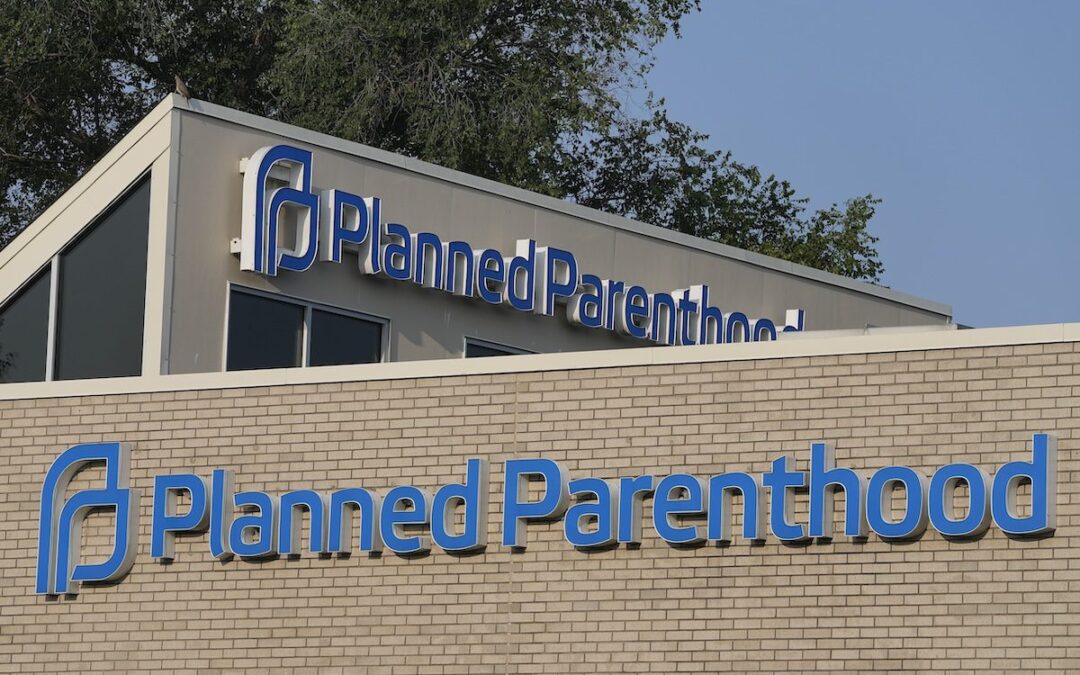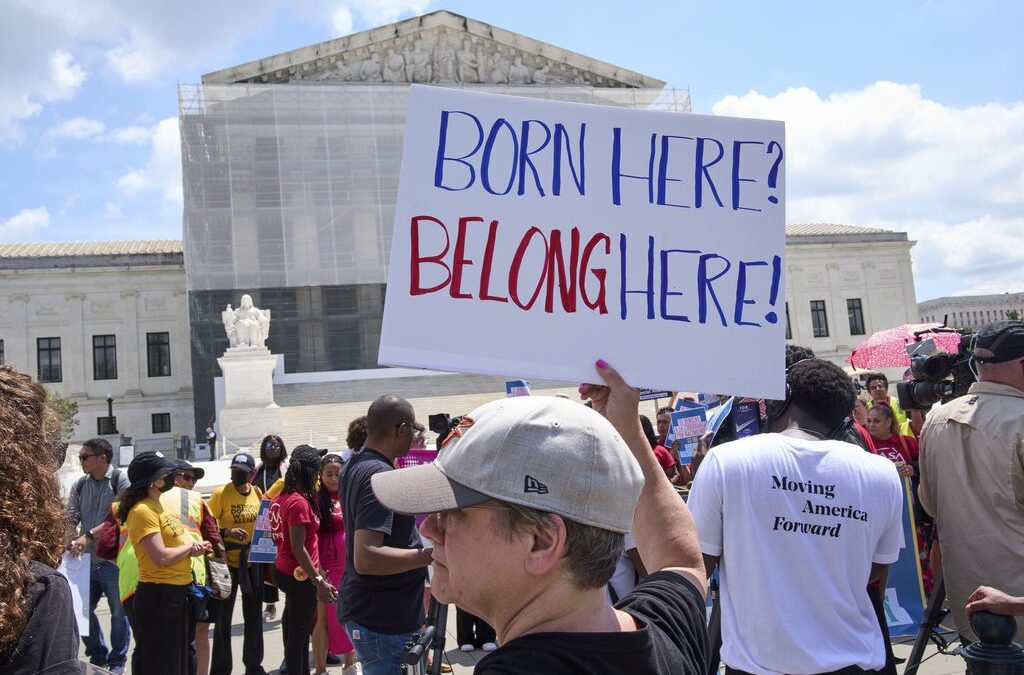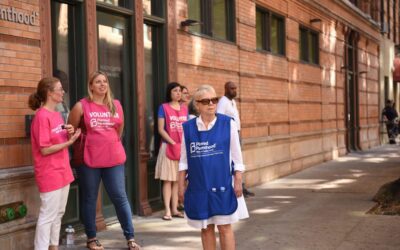
The Care for All Community Clinic is near Miller Valley and Merrill Park. Dr. A says she feels like she's changing lives as she and clinic staff accept any patient, regardless of their ability to pay or their immigration status.
In this interview, the medical director of Milwaukee’s new, independent, non-profit abortion clinic is referred to as Dr. A for safety reasons.
“My husband jokes that this clinic should really be called ‘Care For All People With Uteruses,’ says Dr. A, the medical director of Wisconsin’s new abortion and reproductive health services clinic in Milwaukee.
That’s because the health care center, which is actually called the Care For All Community Clinic, provides both surgical and medication abortions, as well as miscarriage care, to anyone with a uterus—regardless of their ability to pay or their immigration status.
In coming months, STI testing, emergency contraception, pap smears to test for cervical cancer, contraceptive counseling, and gender-affirming care will also be available.
Today, doctors at the clinic, which opened June 10, provide abortions up to 14 weeks—but plan to be able to provide them up to Wisconsin’s legal limit of 21 weeks and six days within the next couple of months.
Dr. A has practiced as an OB-GYN for nearly five years. She says she’s proud that people will never be turned away for a lack of funds. Patients can pay what they can afford, and their immigration status will never be checked.
The clinic also houses a playroom filled with toys for the children of patients who are unable to find childcare, and there will always be a staff member available to babysit while their parent accesses treatment, Dr. A promises.
Care For All is also connected with the “practical support organization” Midwest Access Coalition, which helps provide women from outside Milwaukee with transportation to the clinic and a hotel to stay in while in the city for the two-day process of obtaining an abortion.
The clinic provides Saturday appointments for patients who have difficulty taking time off work, and also has free, gated parking to protect patients’ privacy as well as clinic escorts wearing rainbow vests to help patients get inside the building if they are arriving by bus or on foot.
‘We can change people’s lives for the better—in just minutes’
“We’re trying to decrease any ‘access’ issue (to abortion care) for our patients,” Dr. A explains in an interview with UpNorthNews. “We’ve had a very diverse population of patients, because everybody needs abortions, and while most people are from Milwaukee, we’ve had people come from all over the state.”
“I actually know very little about our patients—socially or demographically,” she explains, “because it doesn’t matter to me. I’m just trying to do the ‘medicine stuff.’”
But one observation that Dr. A has made about her patients is their sense of relief.
“The thing they express to me afterward is relief and gratitude,” she says. “I feel like I’ve never had patients that are so thankful and filled with gratitude as the patients that I do abortions for.”
“I feel like I’m actually changing these people’s lives and it only took me 10 minutes.”
She says she’s driven by a mission of providing abortion care in Wisconsin—a state that’s had its share of reproductive health care restrictions since the US Supreme Court overturned Roe v. Wade in 2022.
Read More: Wisconsin Ob-Gyn: ‘It’s such a relief! Abortion is legal in Wisconsin.”
“It’s easy to think that, oh, someone else can do it, but they actually can’t,” she explains. “There are not that many OB-GYNs out there, and there’s going to be even fewer and fewer as the years go by. If I know how to do this safely and well, I want to help.”
“People ask me about (the scope of being an OB-GYN)—‘Don’t you feel weird delivering a baby and then doing an abortion?’” says Dr. A. “I’m like, no—that’s literally just part of being an OB-GYN… I want people to know that it’s just another part of taking care of women and people with uteruses. I need to keep doing it because so few people are.”
There are several factors contributing to a declining number of OB-GYN specialists in the US—and the situation is getting worse. Between 2011 and 2021, 25% of rural hospitals with OB units closed their maternity wards, and the recently passed “One Big Beautiful Bill”—which pays for billionaire tax cuts by slashing the Medicaid program—is predicted to lead to the loss of more than 300 rural hospitals across the country. What’s more, the number of medical students applying to OB-GYN residency programs is declining at an alarming rate.
“I think I would feel like a sham OB-GYN if I was an OB-GYN and not doing abortions,” Dr. A tells UpNorthNews. “Not that I want to say that OB-GYNs who aren’t doing abortions are bad people, because unfortunately, the circumstances in this country are terrible. But for me personally, I don’t think I would be doing my job to the best of my ability if I wasn’t doing abortions.”
Then there is Dr. A’s daughter, just 2 years old. She’s the younger of Dr. A’s two children, along with a son who’s 4.
It was her young daughter’s future reproductive health and welfare which motivated Dr. A to open the clinic.
“I said to my husband, what if our daughter ever needs an abortion? Who’s gonna do it?”
“I’ve come to the sentiment that somehow it’s really easy for a lot of people to just basically ignore stuff if it’s not happening to them at the moment… but then, if we all waited until then, you know, by then it’s too late.”
Dr. A, originally a Long Islander, tells UpNorthNews that she wasn’t “one of those people who always wanted to be a doctor,” but she loved science and “wanted to do something with people” as a profession.
That led her into medicine and she decided to specialize in obstetrics and gynecology “because there weren’t enough people providing the care for people with uteruses that they deserve.”
She moved to Wisconsin after she met her husband at medical school in Kansas City, Missouri. He was from Wisconsin and after graduating, the pair moved back to his home state. She now proudly considers herself a Wisconsinite.
She is also proud to have opened the Care For All Community Clinic with her co-founder, executive director Ali Kliegman, after the pair successfully raised funds to allow them to launch the independent non-profit health care center.
It is the third women’s reproductive health care clinic in Milwaukee and only the fifth in the state. If patients come to the clinic and are beyond Wisconsin’s 21 weeks and six days legal limit for an abortion, Dr. A refers them to abortion service providers in the Chicago area, including the Hope Clinic.
There are local funders who care about women’s access to abortion
Financial support for Care For All mostly came from various foundations specifically from Wisconsin. “There are people that care and that want to fund us and help, which is awesome and I hope that they continue to do that for many years on end,” Dr. A says.
Dr. A shares that it took about a year after she agreed to be the clinic’s medical director before the doors opened. Kliegman had been introduced to her by a mutual friend and once she was offered the position, “I thought… how can I not do this?”
After Roe v. Wade fell in June 2022 and an old 1849 abortion ban—which was still on the Wisconsin law books—went into effect, she says that she and every OB-GYN that she knew in the state was “gutted.”
Under the 1849 ban, an abortion—which was considered a Class H felony—could only be performed to save the life of the mother, and the patient’s doctor was required to also have two other physicians agree that an abortion was necessary to save her life. The penalty for performing an unauthorized abortion was up to six years in jail and a $10,000 fine.
“All I wanted to do was do my job and practice medicine and do it well. But to have people who don’t know the first thing about medicine and actually spew lies, then support laws that end up affecting not only my patients, but myself and my family, that’s horrible,” Dr. A says. “I was devastated.”
The ban was in place for 13 months—until September 2023—when the state Supreme Court ruled that the law only applied to “infanticide.”
However, during those 13 months, Dr. A says she saw OBGYNs that she had known and respected for years “start second-guessing themselves (about when an abortion was still medically necessary under the law), because they didn’t want to go to jail.”
“The mental impact that the ban had on health care workers…you can’t understate it. It was so stressful,” she says.
Nevertheless, Dr. A and Kliegman kept plowing forward. “There are always going to be forces that don’t want us to do abortions,” Dr. A says. “And their goal is to make us scared. But we can’t let them win.”
Editor’s Note: The 1849 abortion ban case was finally blocked for good in early July 2025, when the liberal justices on the state Supreme Court struck it down in a 4-3 decision, with all three conservative justices voting to uphold the ban.

Wisconsin Supreme Court candidate has a history of being a reliable vote for right-wing causes
GOP-backed Appeals Court Judge Marie Lazar has announced she’s running for a seat on the Wisconsin Supreme Court. Lazar has a history of restricting...

Women and doctors on latest abortion restrictions: Get out
Candidate for governor Tom Tiffany tries to imply he’d maintain current law, but his record and rhetoric show that Wisconsin could see a total...

Supreme Court limits nationwide injunctions, but fate of Trump birthright citizenship order unclear
WASHINGTON (AP) — A divided Supreme Court on Friday ruled that individual judges lack the authority to grant nationwide injunctions, but the...

Trump administration revokes guidance requiring hospitals to provide emergency abortions
WASHINGTON (AP) — The Trump administration announced on Tuesday that it would revoke guidance to the nation's hospitals that directed them to...





